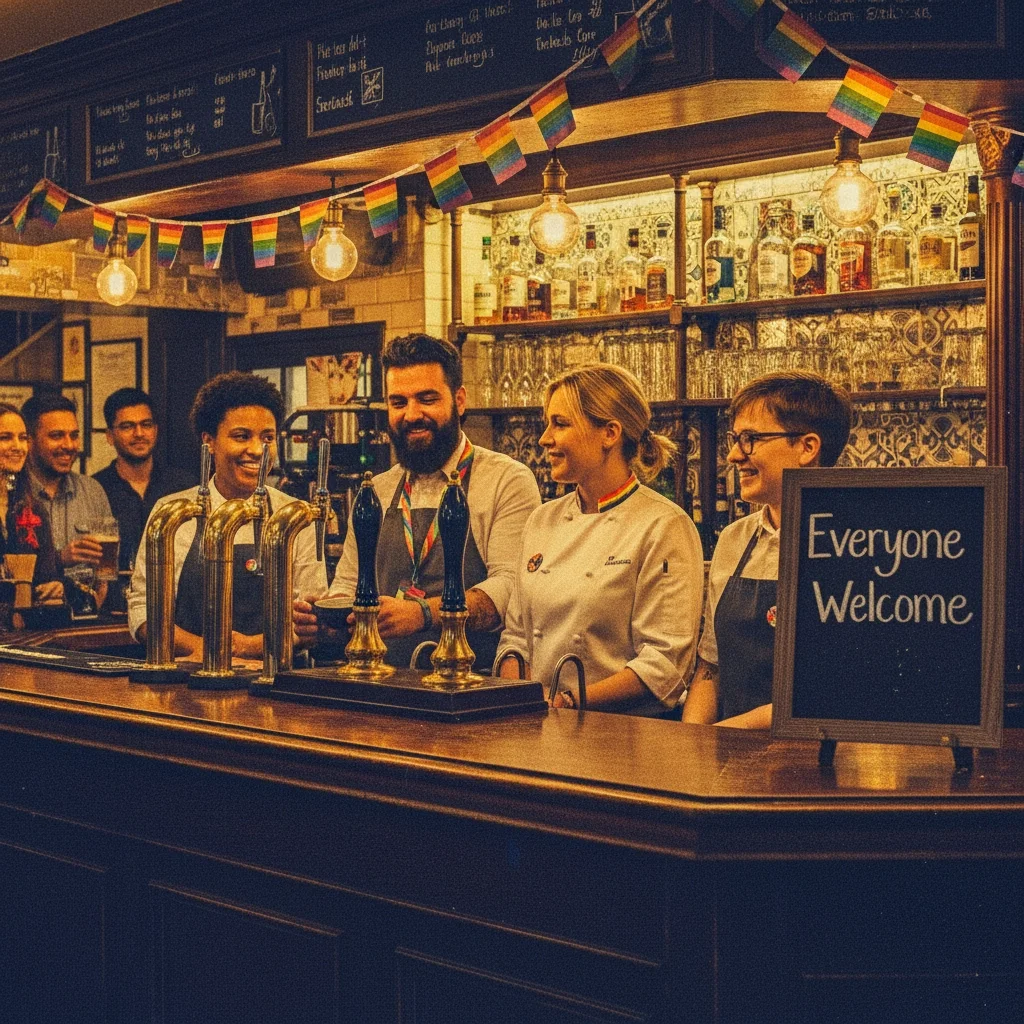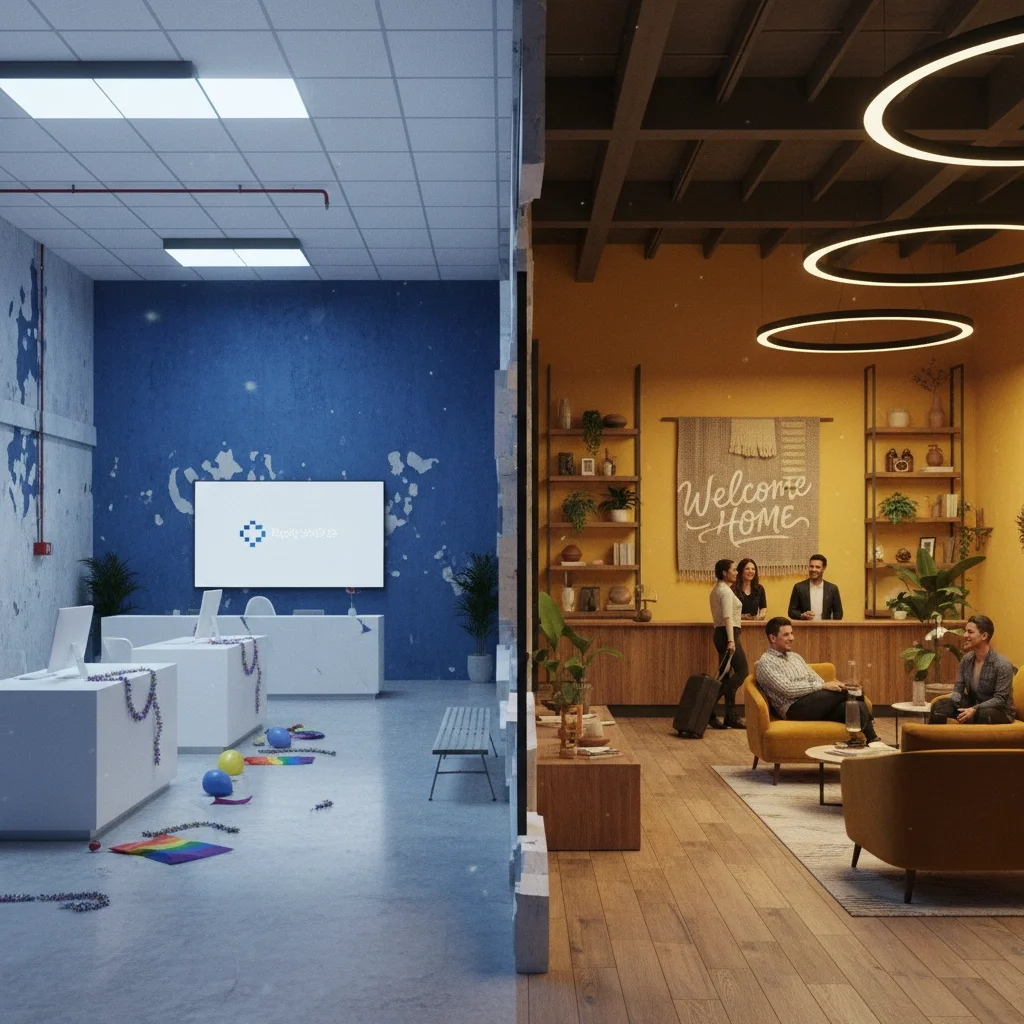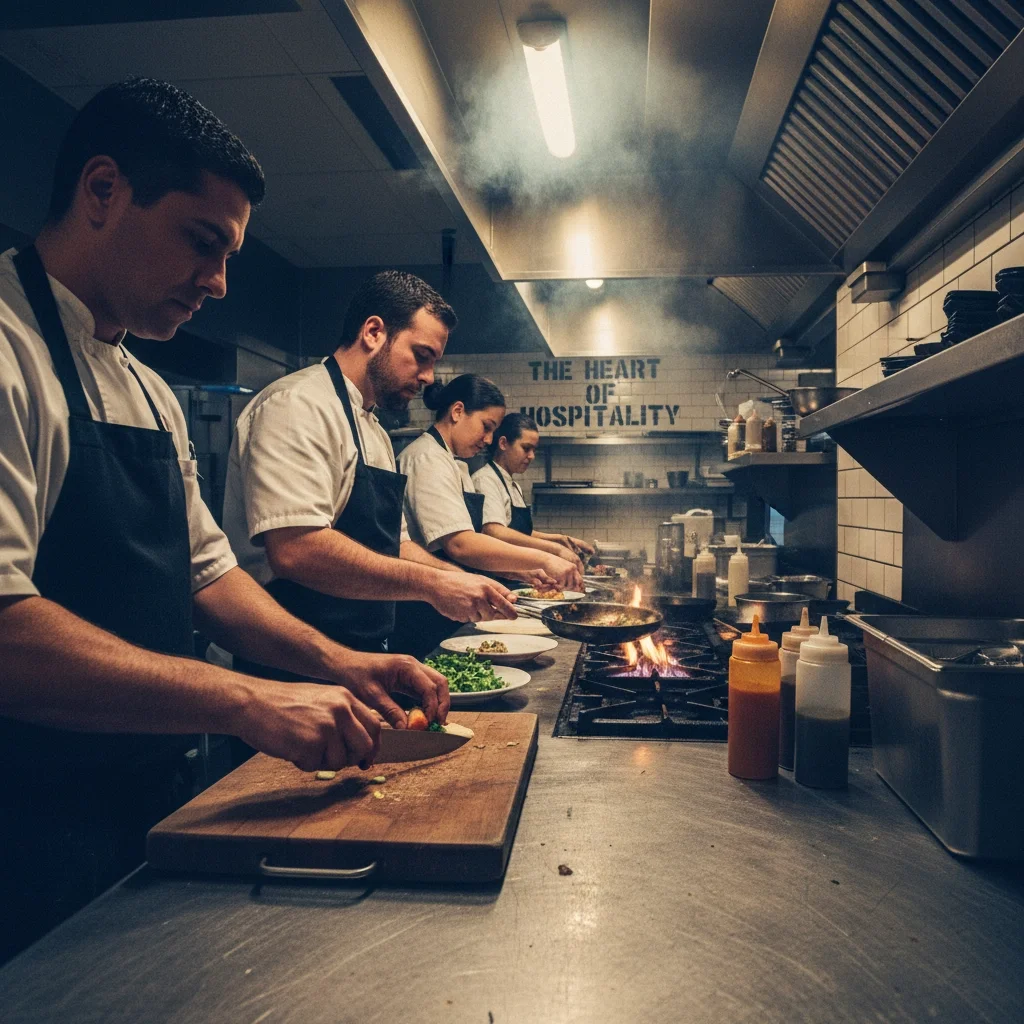LGBTQIA+ Visibility in UK Hospitality: Why Safe, Inclusive Workplaces Matte
Something happened recently that made me realise just how much we take for granted. My partner came home from work visibly shaken after experiencing homophobia from a colleague: not the first time, but severe enough that it lingered for days. It got me thinking about my own journey through various hospitality roles and how differently our experiences have been.
Across my career in UK hospitality, I've been fortunate. Save for one particularly toxic workplace early on where I experienced my own share of prejudice, I've rarely witnessed the kind of discrimination that still haunts too many LGBTQIA+ workers today. That contrast isn't coincidental: it highlights something crucial about workplace culture here at home and why visible inclusion matters more than ever.
The Reality Check We Can't Ignore
Here's the thing most of us don't have to consider when job hunting: Will I be safe being myself at work?
For many jobseekers in the UK, the biggest concerns revolve around pay, progression, or company culture. But for LGBTQIA+ individuals, there's an additional layer of vulnerability: especially in hospitality, where you're constantly on display—from pubs and cafés to hotels and high-street restaurants. The public-facing nature of our industry can leave LGBTQIA+ workers feeling particularly exposed to discrimination, harassment, or worse from both guests and colleagues.
Think about it: when was the last time you checked a UK employer's inclusion policies before applying—does it reference the Equality Act 2010, name clear reporting routes, or state expectations for customer behaviour? If you're like most people, probably never. That privilege—the ability to focus solely on role requirements rather than personal safety—isn't universal. And that's precisely why businesses need to step up.
Beyond Rainbow Logos: What True Inclusion Looks Like
We've all seen it. June arrives and logos go rainbow. Social feeds brim with statements, and Pride-themed products appear overnight—from Pride in London to Manchester and Brighton. But come July? Business as usual.
This performative allyship isn't just disappointing: it's harmful. It creates false hope while maintaining the status quo. Real inclusion isn't seasonal; it's woven into the fabric of how a business operates, year-round.
True inclusion in hospitality looks like:
Leadership teams that reflect the diversity of your workforce and local communities
Clear, enforced policies protecting LGBTQIA+ employees from discrimination, aligned with the Equality Act 2010 (sexual orientation and gender reassignment are protected characteristics)
Training that goes beyond compliance to build genuine understanding, drawing on UK guidance from ACAS and CIPD
Support systems that address the unique challenges LGBTQIA+ workers face, including confident handling of customer misconduct
Career development opportunities that don't require hiding your identity—and visible signals of inclusion such as pronouns on name badges and gender-neutral facilities where feasible
The Hospitality Paradox
Our industry has always been a melting pot—celebrating diversity in cuisine, culture, and creativity—from high-street cafés and city hotels to country pubs. Yet somehow, we still struggle to create genuinely safe spaces for LGBTQIA+ workers in the UK. There's an irony here that we need to address head-on.
Hospitality thrives on authentic human connection. We pride ourselves on making everyone feel welcome, yet too many of our own team members feel they can't bring their whole selves to work. That disconnect isn't just morally problematic: it's bad for business.
Evidence and UK employer guidance consistently show that LGBTQIA+-supportive workplaces experience:
Reduced staff turnover and recruitment costs
Increased employee engagement and productivity
Enhanced reputation and customer loyalty
Better bottom-line performance overall
When people feel safe and valued, they perform better. It's that simple.
Making Change Happen: Practical Steps for Leaders
If you're reading this as a hospitality leader, you might be wondering where to start. The good news? You don't need a complete overhaul overnight. Small, consistent changes create lasting impact.
Start with visibility. Make your inclusion efforts obvious on your website, job adverts, and staff materials. Don't hide your values in small print—lead with them. Prospective LGBTQIA+ employees need to know they're safe before they even apply. Consider simple, UK-specific signals: pronouns on name badges, inclusive language on menus and signage, and a clear statement of expectations for guest behaviour.
Implement comprehensive policies. Create clear, specific guidelines about discrimination and harassment that align with the Equality Act 2010. Make sure everyone knows how to report issues, what will happen next, and that reports will be taken seriously. Anonymous routes help. So does signposting ACAS guidance and offering independent whistleblowing channels.
Train beyond compliance. Basic tick-box training isn't enough. Invest in education that helps your team understand LGBTQIA+ experiences, recognise unconscious bias, and respond appropriately to discrimination—using UK case studies and scenarios across pubs, restaurants, and hotels. Make this training ongoing, not a one-off checkbox exercise.
Create support networks. Employee resource groups, mentorship programmes, and peer support systems can make an enormous difference—especially across multi-site operations and shift patterns. Sometimes, knowing there's someone who understands your experience is enough to transform a workplace.
Review your benefits and policies. Do your wellbeing benefits and EAPs signpost inclusive NHS and private options, including gender-affirming care where available? Are your parental leave policies inclusive of all family structures, including adoption and surrogacy? Do facilities planning consider privacy and gender-neutral options where feasible? These details matter more than you might realise.
The Mental Health Connection
One aspect we can't ignore is the psychological toll of workplace discrimination. LGBTQIA+ individuals already face higher rates of mental health challenges due to societal stigma. When work becomes another source of stress rather than stability, the impact compounds.
Creating psychologically safe workplaces isn't just about preventing discrimination: it's about actively fostering environments where people can thrive. This means:
Regular check-ins with team members about workplace culture
Access to mental health resources and employee assistance programmes, with clear signposting to NHS and charity support
Clear pathways for addressing concerns without fear of retaliation
Leadership that models inclusive behaviour consistently
Why This Matters to Everyone
You might be thinking, "This is important, but how does it affect me if I'm not LGBTQIA+?" Here's the thing: inclusive workplaces benefit everyone. When organisations create psychologically safe environments, all employees feel more comfortable being authentic, speaking up about problems, and contributing their best work.
Moreover, the skills required to create LGBTQIA+-inclusive workplaces: empathy, cultural competency, effective communication: are the same skills that improve overall workplace culture. It's not about special treatment; it's about basic human dignity and respect.
The Road Ahead
Change won't happen overnight, but it can happen. Every conversation, every policy update, every inclusive hiring decision moves us forward. UK hospitality has the opportunity to lead by example—to show other sectors what genuine inclusion looks like in practice, from independents to national groups.
For those experiencing discrimination: know that you deserve better, and there are workplaces out there that will value and protect you. Don't settle for environments that diminish your worth.
For leaders: remember that inclusion isn't a destination: it's an ongoing commitment. Start where you are, use what you have, do what you can. Your LGBTQIA+ employees (and future employees) are counting on it.
The question isn't whether you can afford to prioritise inclusion: it's whether you can afford not to. In an industry built on human connection, ensuring everyone feels safe to be human isn't just good ethics; it's good business.
At Three Chords Coaching, we work with hospitality leaders to create workplaces where everyone can thrive. Because when your people feel safe and valued, extraordinary things become possible.
SEO Title: LGBTQIA+ Visibility in UK Hospitality: Build Safer, Inclusive Teams and Stronger Businesses
SEO Description: Update your pub, restaurant, or hotel for genuine LGBTQIA+ inclusion in the UK. Practical actions aligned with the Equality Act 2010, ACAS guidance, and hospitality realities—from pronouns on badges to confident handling of customer misconduct. Build safer teams, cut turnover, and grow reputation. Start small, stay consistent, and lead with values all year, not just during Pride.






